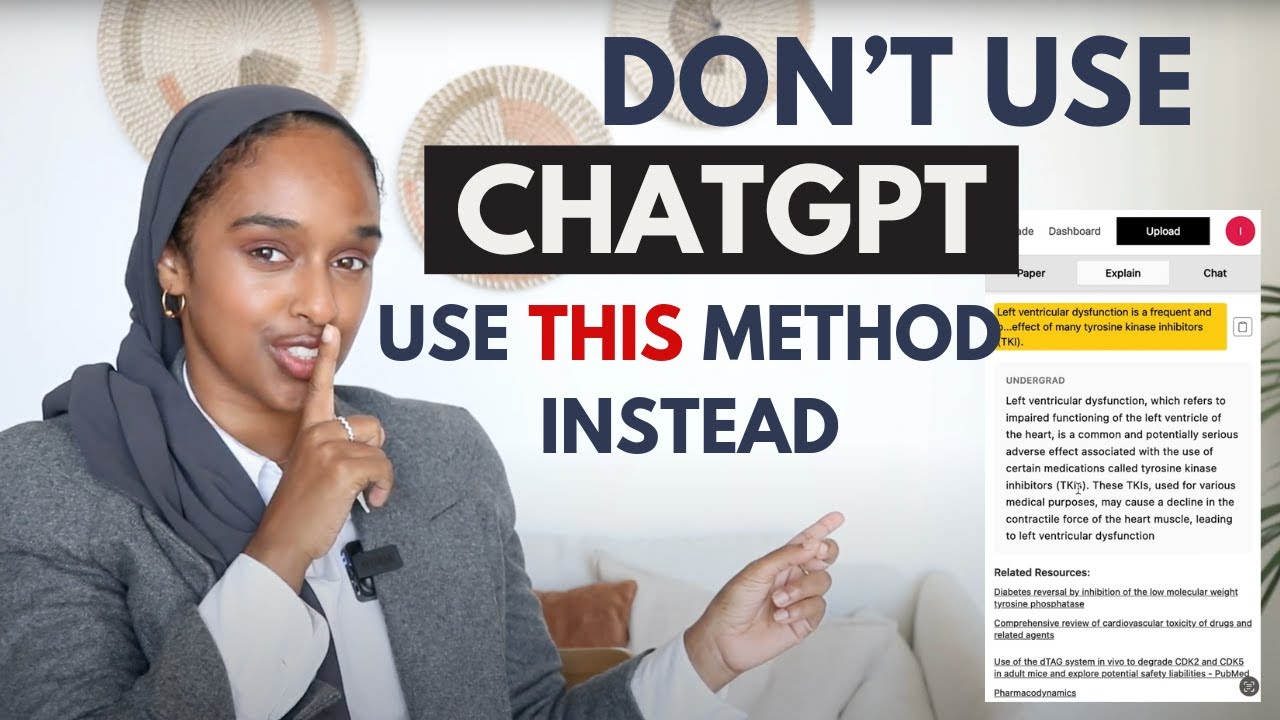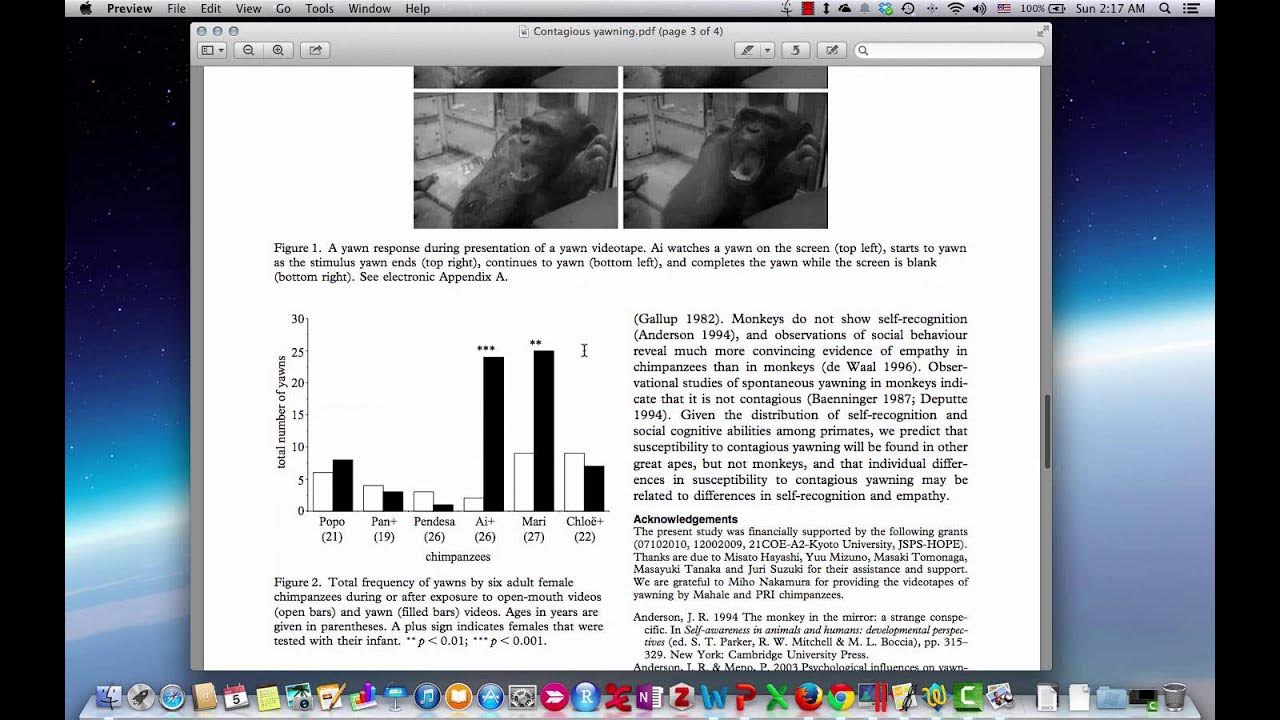Read a research paper effectively | Little known AI tools and tricks!
Summary
TLDRThe video provides strategies for quickly and effectively reading research papers, essential for PhD students and researchers. It covers tools like Connected Papers, Research Rabbit, and Lateral.io to help find relevant papers efficiently. The speaker emphasizes starting with review papers, scanning titles, abstracts, and figures, and using AI tools to uncover related work. The method includes focusing on key sections like conclusions and discussion first, before delving into the methods, making the process faster and more productive. The video also promotes the speaker's newsletter and academic writing resources.
Takeaways
- 📚 Reading research papers quickly and effectively is essential during a PhD and research.
- 🔍 There are two primary reasons for reading papers: to find relevant research for your work or to quickly find citations.
- 🔑 Identifying the most impactful papers in your field is crucial for efficient research.
- 🛠️ Tools like Connected Papers, Research Rabbit, and Lit Maps can help explore literature based on seed papers.
- 💡 Keywords are key to finding relevant papers, and tools like lateral.io can assist in identifying contextual links between papers.
- 📊 Review papers are a great starting point as they summarize large areas of research and offer many citations.
- 📝 To read papers effectively, begin with the title, abstract, and figures, then move to conclusions and results.
- 🔎 Skim papers for relevance by scanning titles, abstracts, and tables before diving into the full text.
- 🚀 Tools like lateral.io use AI to help you find connections between papers, making literature reviews more efficient.
- 🌟 Once important papers are identified, focus on understanding conclusions, methods, and results in more detail.
Q & A
What are the two main reasons the speaker reads research papers?
-The speaker reads research papers for two main reasons: first, to stay updated on new developments related to their research and identify relevant methods or skills. Second, to quickly find citations needed to back up assertions or claims in their own research papers.
Why is it important to read research papers effectively?
-Reading research papers effectively is important because it helps save time, ensures that relevant information is extracted efficiently, and aids in incorporating the findings into one's own research. PhD students and researchers spend a lot of time going through papers, so reading them in an organized manner is crucial.
What are the three tools recommended for finding and exploring research papers?
-The three tools recommended for finding and exploring research papers are Connected Papers, Research Rabbit, and Litmaps. These tools allow researchers to start with a 'seed' paper and branch out to related studies in a more structured way than just relying on keywords or search engines like Google Scholar.
What is the role of keywords in searching for research papers?
-Keywords play a vital role in finding research papers as they allow researchers to filter through the vast amount of available literature. Selecting the right keywords helps in identifying the most relevant and impactful papers in a particular field. Poor keyword selection can lead to missing out on important papers or getting overwhelmed by irrelevant ones.
Why should researchers focus on review papers first?
-Researchers should focus on review papers first because they provide a comprehensive overview of a field, summarizing multiple studies into a single paper. This makes it easier to identify important trends and influential research without reading every individual paper in detail.
What is the recommended order for reading different sections of a research paper?
-The recommended order for reading a research paper is: 1) title, 2) abstract, 3) figures and tables with captions, 4) conclusions, 5) discussion and results, and lastly 6) methods. This order helps researchers quickly assess whether a paper is relevant before delving into the more complex sections.
What is Lateral.io, and how does it help researchers?
-Lateral.io is a tool that uses artificial intelligence to help researchers search for papers not just by keywords but by contextual understanding. It can identify connections between different research papers and highlight similar studies, making it easier to discover relevant literature and prioritize which papers to read.
Why should researchers read the conclusions before the methods section?
-Researchers should read the conclusions first because this section provides a summary of the paper's findings and their relevance. By reading it early on, researchers can determine whether the paper is useful for their work without getting bogged down by the details of the methods, which can be time-consuming.
What role do figures and tables play in quickly assessing a research paper?
-Figures and tables are important for quickly assessing a research paper because they visually summarize the data and results. By reading the captions and looking at the figures, researchers can get an overview of the study's findings without having to go through the entire text.
What is the benefit of turning your thesis introduction or literature review into a review paper?
-Turning a thesis introduction or literature review into a review paper can help gather citations early on in a PhD. Review papers tend to receive more citations as they summarize large amounts of research, making them a valuable contribution to the academic community.
Outlines

This section is available to paid users only. Please upgrade to access this part.
Upgrade NowMindmap

This section is available to paid users only. Please upgrade to access this part.
Upgrade NowKeywords

This section is available to paid users only. Please upgrade to access this part.
Upgrade NowHighlights

This section is available to paid users only. Please upgrade to access this part.
Upgrade NowTranscripts

This section is available to paid users only. Please upgrade to access this part.
Upgrade NowBrowse More Related Video

How To Read A Paper Quickly & Effectively With AI

How To Read Papers Fast & Effectively - PhD student

How To Read Research Papers Effectively | Prof. David Stuckler

How To Choose A Research Topic For A Thesis Or Paper (3 Crazy Simple Steps)

Finding online sources for your research paper

How to Read a Paper Efficiently (By Prof. Pete Carr)
5.0 / 5 (0 votes)